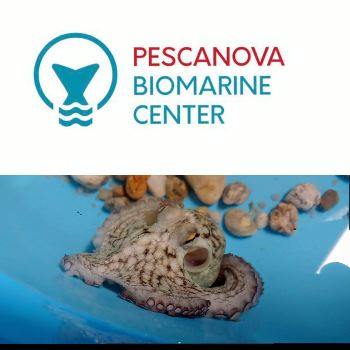|

The survival rate of a wild octopus is 0.0001% and it is estimated that it will rise to 50% in the Pescanova Biomarine Center.
Pescanova manages to close reproduction cycle of common octopus in captivity
 SPAIN
SPAIN
Friday, July 19, 2019, 00:00 (GMT + 9)
The Nueva Pescanova Group has managed to close the reproduction cycle of common octopus in aquaculture, after decades of research from different centers and companies around the world. The company has achieved that the captive-born octopus not only reaches adulthood, but also begins to reproduce in an environment outside its natural habitat.
In a statement, the company reported that its team of researchers is working with 50 octopuses born in captivity in 2018, of the common octopus variety (Octopus vulgaris). This species is the most consumed in Spain and occurs, above all, in the Atlantic Ocean, the Mediterranean Sea and the Mauritanian area.
.jpg)
Octopus reproduced in captivity. (Photo: Pescanova)
The research was initiated by the Spanish Institute of Oceanography (IEO), which achieved the survival of juveniles born in captivity, and then, after reaching an exclusive agreement on the patent, Pescanova advanced with the research in its facilities.
The octopuses, half of which are female, have reached adulthood and one of them has already made an egg laying, which will be taking care until approximately within a month, when octopuses will hatch and be born.
Octopus eggs. (Photo: IEO)
According to Ricardo Tur, main researcher of cephalopods at Pescanova, "the octopus requires very specific marine conditions for its development, such as the availability of food and optimal oceanographic factors related to temperature, salinity, ocean currents and animal welfare."
In fact, the survival rate of a wild octopus is 0.0001 percent while, with the results that Pescanova is obtaining so far, this figure is estimated to be 50 percent in aquaculture.
The Aquaculture R & D Center, Pescanova Biomarine (project that will be operational next year) (Photo: Pescanova)
The objective of the company is to continue exploring options for the future commercialization of the octopus, in response to the high demand internationally in recent years, which has led to a growing shortage of wild octopus and, therefore, a problem of sustainability of the marine environment.
.jpg) "We will continue to investigate how to continue improving the well-being of octopi, studying and replicating their natural habitat, with the foresight to start marketing octopus as of 2023," says company CEO Ignacio González.
Octopus farmng will be one of the main lines of study that the Pescanova Biomarine Center will carry out, one of the international reference R+D+i centers that will open its doors in O Grove (Pontevedra) in 2020, and whose team has already started research work from the facilities of Nueva Pescanova in Chapela (Vigo).
The company is firmly committed to aquaculture as a method to reduce pressure on fishing grounds and ensure sustainable, safe, healthy and controlled resources, complementing fishing. In fact, it highlights that it has been working for decades in the efficient development of sustainable extractive fishing and the cultivation of different species, minimizing the impact on the marine environment, being one of the main producers of turbot and vannamei shrimp in the world.
|



